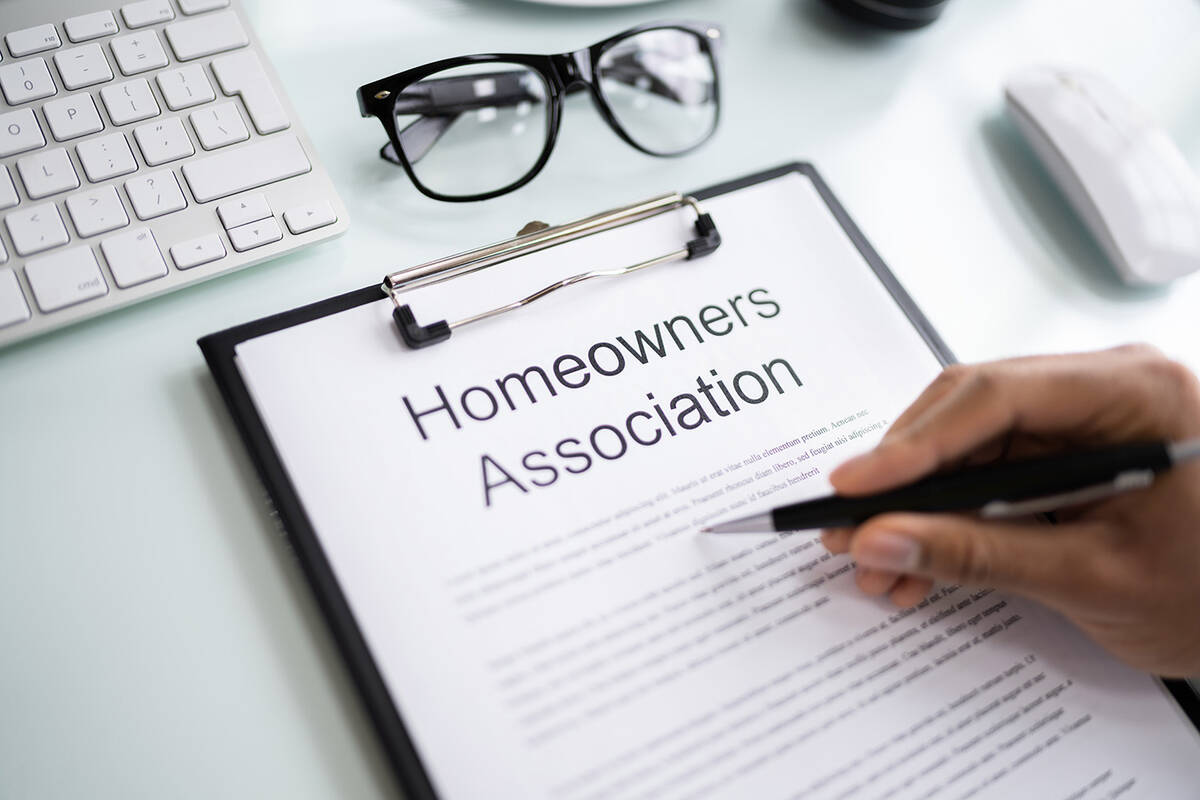HOA board cannot arbitrary enforce violations
Q: How can I manage selective enforcement of covenants, conditions and restrictions in my homeowners associations. I don’t want to get in a situation where I tattletale about my neighbors, but I am sick of being singled out for enforcement. Can these people actually enforce CC&Rs for some and not others? Can I demand all CC&R violations be resolved before I entertain the idea of doing anything regarding the CC&Rs. When I asked about specific issues I was told that the board recognized that there were violations but I was told the homeowner “is a really nice guy.” I am an older female, and I don’t know if I am nice, but I am tired of this situation. Your thoughts are appreciated.
A: Under Nevada Revised Statutes 116.3102 (3) (a-d), the board may determine whether to take enforcement action by exercising the association’s power to impose sanctions or commence an action for violation of its governing documents, including whether to compromise any action for unpaid assessments or other claims made by or against it. The board does not have a duty to take enforcement action if it determines that under the facts and circumstances presented that:
a. The association’s legal position does not justify taking any or further enforcement action.
b. The CC&Rs or rule being enforced is or is likely to be construed as inconsistent with the current law.
c. Although a violation may exist or may have occurred, it is not so material as to be objectionable to a reasonable person or to justify expending the association’s resources.
d. It is not in the association’s best interests to pursue an enforcement action.
Under subsection 4 of this law, the board’s decision to enforce one set of circumstances does not prevent the board from taking enforcement action under another set of circumstances but the board may not be arbitrary or capricious in taking enforcement action.
Being a “really nice guy” does not fall under the law. Not all violations are easily resolved, especially if the homeowner in violation chooses to ignore the violation and fine letters.
Q: We have an opening for a seat on our three-person HOA board. Only two people are running for this opening. Both nominees are previous board members. One in the running is claiming the other is not qualified to run as he is not listed on the deed. It seems in digging to see who owns the home, it’s the other nominee’s intention to disqualify the other candidate, in order to be elected by default.
The nominee being accused of not being a qualified candidate has been instrumental in helping to repair our reserves, doing small jobs to save our HOA money and helping homeowners with issues like programming their cars to open the gates, etc. His home is under a trust, and his name appears on the trust. I know that placing a home under a trust to protect a family’s interests is not unusual.
Can you provide an answer regarding the legality of someone running for the board under a trust as to being a qualified to run for an HOA board position as a homeowner?
A: Per NRS 116.31034 (14) states that an officer, employee, agent or director of a corporate owner of a unit, trustee or designated beneficiary of a trust that owns a unit, a partner of a partnership that owns a unit and a fiduciary of an estate that owns a unit may be an officer of the association or a member of the executive board.
In the your case, the individual running for the board must file proof in the records of the association that (116.31034 (14a-b) the person is associated with the corporate owner, trust, partnership, limited-liability company or estate and the records identify the unit owned.
Barbara Holland, CPM, CMCA, is an author, educator and expert witness on real estate issues pertaining to management and brokerage. Questions may be sent to holland744o@gmail.com.












